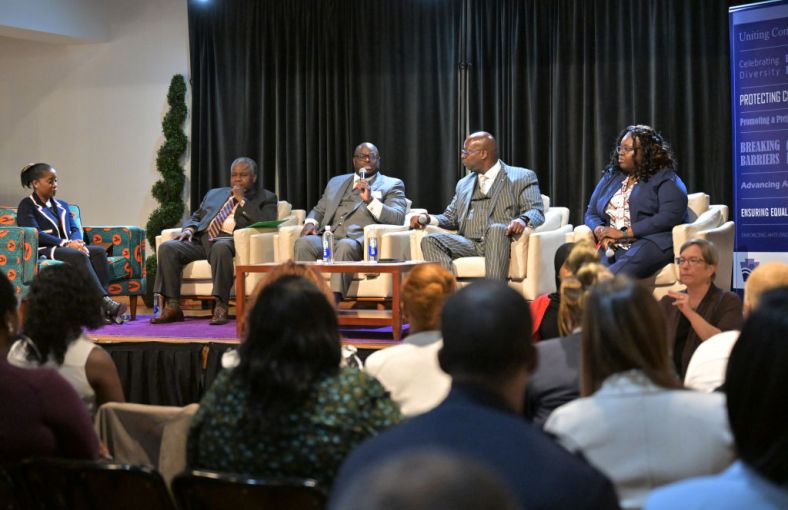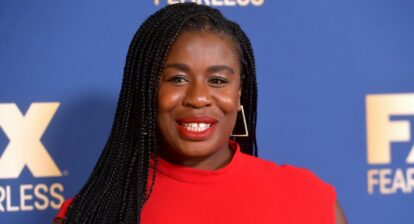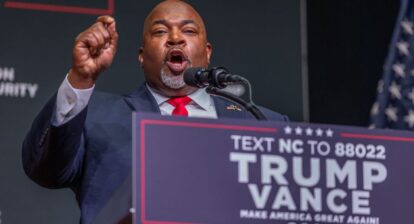The Black professional class has supported its members from the end of slavery to modern times by developing institutions parallel to their white American counterparts. These cooperative institutions allowed them to challenge white supremacy in the workplace and educational facilities by proving their expertise and providing economic opportunities for building wealth. From the National Association of Colored Graduate Nurses established in 1908 to the more recent Black Girls Code, these organizations still stand strong and fill gaps.
What are Black professional organizations?
Professional organizations span across ethnicities. However, when it comes to African Americans, Black professional associations have been vital to ensuring that Black American professionals have the right access to educational opportunities, career development and mentoring opportunities that the dominant society has often restricted from them.
After all, when enslaved people were freed, they didn’t exactly have opportunities handed to them to ease their transition to freedom. They built Black towns and formed their own organizations. Even today, these Black professional organizations help Black students, colleagues, mentors and elders connect to create better opportunities for equity in an often uneven professional landscape.
Even if you’re not a member of certain organizations, you’ve likely heard of some of the most well-known ones, such as the National Urban League (NUL), the National Society of Black Engineers (NSBE), the National Black MBA Association and the Black Girls Code. These groups represent Black Americans across many fields like technology, engineering, medical care, teaching and more.
Benefits of joining Black professional organizations

It’s no secret that Black Americans are talented. After all, there wouldn’t be so many inventions — although often uncredited — if Black Americans didn’t have a range of expertise and talents.
However, despite having skills, a Black youth or older professional aiming for a new start may be hesitant about taking on an opportunity they’re qualified for. Joining the right Black professional organizations means Black students and professionals have mentorship and leaders who can encourage them.
Career development and networking
Dedicated networking events, such as Black professional organizations’ conventions, occur annually to connect people from around the country or world. Many have local chapters with weekly or monthly meet-ups and occasional panel discussions or informal socialization mixtures.
These gatherings provide opportunities for the most powerful African American corporate board members, executives, potential employers, peers and aspiring career changers to meet in comfortable environments and focus on their culture. They can start organic relationships that foster career opportunities and friendships.
Advocacy and representation
Black professional organizations can be a lifeline for an intern or well-oiled and established professional. Someone who feels left out in their day job because they’re the only Black person there can connect with other Black professionals for ongoing support and advice.
Here are some reasons advocacy is needed:
- Legal issues: Professionals may have concerns regarding a lack of response to human resources complaints or legal issues at their current jobs. For example, a member of the National Association of Black Engineers may have an indirect connection to the National Conference of Black Lawyers, which may help them with budding workplace litigation to address current disparities.
- Fair pay: One of the common issues many Black professionals, especially Black women executives, face is that of equal pay and consideration for promotion at the same rate as their non-Black colleagues. According to the National Partnership for Women & Families, even in states with the largest numbers of full-time Black female workers, they still only get 45 to 64 cents for every dollar a white male colleague makes.
- Discrimination: Nearly two-thirds of women of color have reported racial discrimination, and half have reported gender discrimination on the job. Even with Diversity, Equity and Inclusion (DEI) initiatives in place, there were only five Black CEOs in the top 500 companies in 2022. After all, as the infamous label “Black job” was brought up during the 2024 presidential election, Black professionals still face hurdles over what types of jobs they should be in or what companies they should be the face of.
Black organizations understand how important advocacy and Black community contributions are to help narrow the gap in such disparities. As Henry Beecher Hicks III, President and CEO of the National Black MBA Association, wrote,
“Unfortunately, there is still a false narrative around the skill and capability of Black professionals and the value of our jobs. Yes, too many Black professionals hold jobs that are lower-paying, and yes, Black professionals have fewer opportunities for advancement. This has nothing to do with skill, work ethic, or desire. Rather, this stereotype is born out of the cyclical results of poor education options, historical efforts to stifle Black participation in the economy and racism-driven disruptions to Black communities and families. More importantly, the same stereotype ignores the achievements of countless Black leaders who have broken barriers and excelled in high-paying jobs and leadership positions.”
Leadership development
According to a recent McKinsey report, common challenges that Black employees face include higher attrition rates than their White colleagues, failure for jobs to secure advancement opportunities and a lack of sponsorship. Therefore, Black professionals may need to seek leadership resources elsewhere, such as an official organization outside the job.
Luckily, structured mentor programs are commonplace in these professional associations. Mentors in Black professional organizations can help a college student or young professional navigate workplace challenges and reach their aspirational career goals. Members may have access to workshops, certifications and skills development. Established professionals can advise school mentees on the right classes or extra courses to take before and during college.
As Asha Tarry mentions in Minority Business Enterprise:
“As a young Black professional, I benefited from parents affiliated with an extensive network and was exposed to a wide range of professionals. However, I quickly discovered that my experience was not the norm….the young Black and brown professionals I coach today are less experienced than I was at their age and have fewer opportunities. They shy away from networking, are reluctant to approach C-suite professionals…don’t engage in conversations on platforms like LinkedIn. The difference does not stem from a lack of talent but a lack of mentorship.”
Top Black professional networks to support your career

Several Black professional organizations can support your career aspirations and changes from school to retirement. There are national and local chapters for Master of Business Administration holders, engineers, Black females and tech innovators.
National Black MBA Association (NBMBAA)
Holding an MBA can help a graduate or experienced professional in accounting, business, finance or marketing advance in their career — even more so when they join the NBMBAA. The organization empowers leaders by raising money for Historically Black Colleges and Universities (HBCUs), mentoring high school students and helping entrepreneurs with resources to put their degrees to use and launch their own businesses.
NBMBAA is one of many organizations that takes part in Giving Tuesday, a global initiative to help Black people learn new skills, buy school supplies, fund workshops and pay for organization memberships for graduate students. Their website has job listings and opportunities for cash prizes for business students. The organization’s Case Competition has gone on for over 25 years and helps undergrad and grad students.
National Society of Black Engineers (NSBE)
Started by Purdue students, Edward Barnette, Jr. and Fred Cooper and their advisor, Arthur Bond, Ph.D, the Black Society of Engineers (BSE) was formed in 1971. It eventually evolved into the national organization that now hosts an annual four-day conference with over 15,000 attendees in addition to a Career Fair with over 400 exhibitors.
While there is plenty of fun to be had as you engage and network with other Black software engineers and scientists and participate in competitions, it’s also election time for both their national and regional leaders. The conference also has special recognition of the brightest STEM minds during the Golden Torch Awards.
Like many other Black professional organizations, this one reaches back to the youth to encourage budding minds. One form of outreach is the national Summer Engineering Experience for Kids (SEEK), which features thousands of third through fifth graders in addition to the various college students they help fund.
Black women’s network (BWN)
Despite being the most educated demographic in America and one that often opens businesses, black female professionals lack funding — they only receive .3% of venture capital funding. Therefore, if you’re a black female entrepreneur, BWN may be what you need to join the ladders of success for Black women. This nonprofit organization helps Black woman entrepreneurs find funding and connect with like-minded individuals and businesses. Learn more about these venture opportunities through mentorship and regular consultations.
The goals of the organization include using grants, venture capital and business partnerships so entrepreneurs can get the investment they deserve. They also offer development opportunities in advanced technologies, such as Non-fungible tokens (NFTs), Blockchain and Science, Technology, Engineering, and Mathematics (STEM).
Being a part of this organization provides a safe and collaborative networking space that allows Black women to be a part of think tanks and community initiatives around the world. In addition, understanding how hard the workspace can be, the organization also encourages holistic self-care so Black women don’t burn themselves out while taking the reins of carrying on a business.
Additional key organizations
It’s impossible to mention every single organization devoted to Black professional development, but here are some organizations to look out for in your local chapter for job opportunities and events:
- National Association of Black Accountants (NABA): Started in 1969, this organization still stands strong while representing over 10,000 Black business leaders. The NABA provides resources, connections and education for both professionals and student members in the finance fields.
- Black Data Processing Associates (BDPA): This organization has been around for over 50 years and has helped pave the way for African-American talent in the tech industry, STEM and data science fields. The organization has scholarship programs, technology conferences, career expos and publications to help nurture relationships and prepare interested parties for leadership roles in these professions.
- National Black Nurses Association (NBNA): In response to being shut out of the American Nurses Association, Dr. Betty Smith Williams & Dr. Barbara Johnson, created the Council of Black Nurses in Los Angeles while Dr. Florence A. Stroud and Carlessia Hussein formed the Bay Area Black Nurses Association in the 1970s. By 1971, NBNA was officially formed and now has membership on various national and federal committees.
- National Bar Association: With a membership that features over 67,000 judges, law professionals, law students and lawyers, the 100-year-old National Bar Association is the oldest and largest network of its kind. There are over 80 American chapters along with international associations.
- National Organization of Black Law Enforcement Executives (NOBLE): The association has 60 chapters in regions with over 4.500 members. The organization’s main goal is to improve relations between local communities and law enforcement.
- National Association of Black Journalists (NABJ): The association has initiatives like grants for members dealing with layoffs, mental health check-ins, career fairs and an annual conference.
Don’t forget about specific Black professional organizations in Atlanta — the unofficial Black Mecca — such as the Atlanta Black Chambers. This non-profit organization focuses on activities in the local Black community, local government and businesses. The 100 Black Men of America does local outreach, including scholarships and charity work.
Advocate for change and advance your career

Black professional organizations have several ways to empower their members and outreach recipients. They do so through education, lobbying policymakers, building connections with venture capitalists and grantmakers and fighting for a legislature that provides equal opportunity for Black professionals.
These organizations have provided openings when mainstream organizations have shut out Black professionals, such as nurses, engineers or doctors. They aid in creating a positive visual representation within the Black community as well as on a nationwide stage to showcase the talent, expertise and skill that many Black Americans have.
Joining these organizations provides direct contact with experts at various levels who want to work with other Black professionals and students. This ongoing connection builds a strong cultural network that can provide inspiration for generations to come. Remember, some organizations have outreach efforts that start at the elementary or high school level, something to keep in mind for the younger people in your life whom you also want to encourage.
!function(){var g=window;g.googletag=g.googletag||{},g.googletag.cmd=g.googletag.cmd||[],g.googletag.cmd.push(function(){g.googletag.pubads().setTargeting(“has-featured-video”,”true”)})}();




